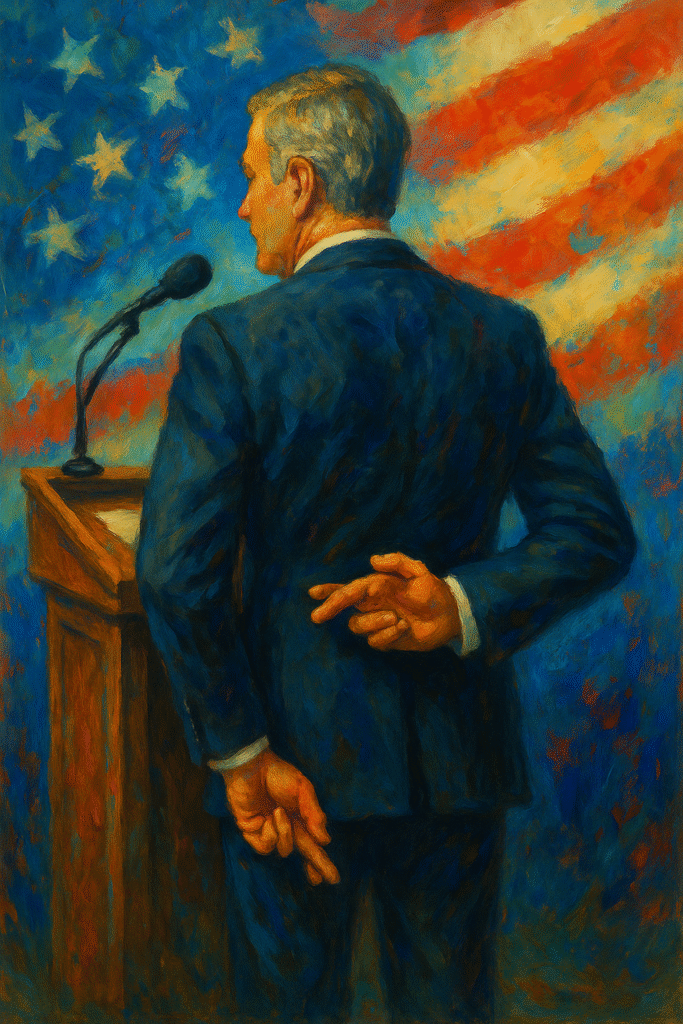The history of lying in politics is long and complex, tracing back to ancient civilizations where rulers used deception to maintain power. Understanding how political deception has evolved helps us grasp its implications today. From overt falsehoods to subtle manipulations, deception has permeated political landscapes across cultures and eras. This article explores the impact of falsehoods in politics, historical examples of political lies, and the ethical dilemmas surrounding political integrity.
The Roots of Political Deception
Political deception isn’t a modern phenomenon. Ancient texts reveal that rulers from Ancient Egypt to Rome employed lies as tools of governance. Historical examples of political lies include:
* Ancient Rome: Politicians often manipulated public opinion through exaggerated claims.
* Medieval Europe: Monarchs generated false narratives to justify wars or suppress dissent.
* Renaissance: Machiavelli analyzed deception in governance, famously stating, “the ends justify the means.”
These foundational moments shaped the evolution of political manipulation, laying the groundwork for future practices.
Impact of Falsehoods in Politics
Lies in political campaigns can have significant consequences. According to a study from the Government Research Database, deceptive political strategies can lead to:
1. Erosion of Trust: Public trust in politicians often falters when deception is uncovered.
2. Voter Misinformation: False information can mislead voters, affecting election outcomes.
3. Societal Polarization: Political dishonesty can exacerbate divisions within society, leading to further polarization.
Lying Politicians: Case Studies
Understanding the history of lying in politics requires examining notable figures who have wielded deception effectively. Here are some key historical examples:
Richard Nixon and Watergate
The Watergate scandal exemplifies misleading tactics. Nixon’s denial of any wrongdoing initially maintained his political integrity until the truth emerged, leading to his unprecedented resignation.
Bill Clinton’s Impeachment
Clinton’s infamous “I did not have sexual relations with that woman” statement marked a pivotal moment in U.S. politics that blurred the lines between personal and political truthfulness.
Recent Examples and Their Implications
Modern politics continues this trend. For instance, the myriad of misleading claims during election campaigns underscores the ongoing battle between truth and deceit. According to research from the Academic Research Portal, falsehoods during elections have increased, raising questions about political integrity.
Ethical Considerations in Political Discourse
The ethics in political discourse are hotly debated. The impact of lies in political campaigns can be dire:
* Voter Disenfranchisement: When lies mislead voters, they may feel disconnected from the political process.
* Manipulation by Media: With the rise of social media, deceptive narratives can spread rapidly, often unchecked.
Addressing Political Lies
To combat the influence of falsehoods, several strategies can be employed:
1. Fact-Checking Initiatives: Organizations like FactCheck.org provide reliable analyses of claims made by politicians.
2. Media Literacy Programs: Educating the public on discerning credible information is pivotal in today’s media landscape.
3. Political Accountability: Encouraging transparent political practices can foster trust and integrity.
The Future of Lying in Politics
As technology continues to advance, the history of lying in politics will likely evolve. Emerging trends such as deepfakes pose new challenges for integrity:
* Deepfake Technology: This technology can create realistic but entirely false audio and video clips of political figures.
* Social Media Algorithms: They can significantly influence the spread of misinformation, complicating the truth’s discovery.
Ensuring a Transparent Political Future
To uphold democratic values, it’s crucial to advocate for transparency in governance and promote ethical practices. Citizens must take an active role in demanding accountability from their political leaders.
Conclusion: Navigating the Future
The history of lying in politics teaches us that while deception may yield short-term gains, its long-term consequences can be detrimental. As we navigate a complex political landscape, it’s vital for voters to demand honesty and transparency. A politically engaged citizenry is essential for integrity in governance.
Call to Action: Stay informed and help combat political deception. Engage in conversations about the importance of truth in politics and educate others on how to discern misinformation effectively.
For more insights on political integrity, check out government resources on data.gov and academic studies on scholar.google.com.


